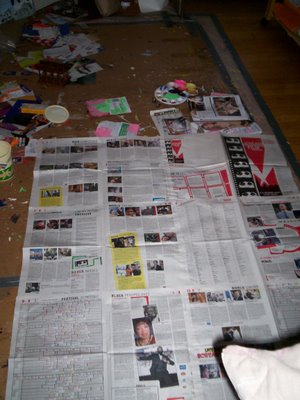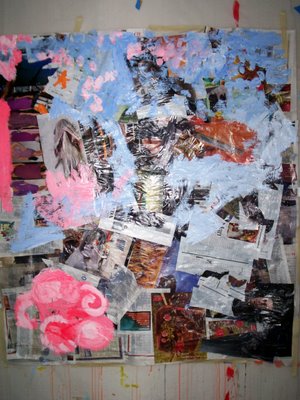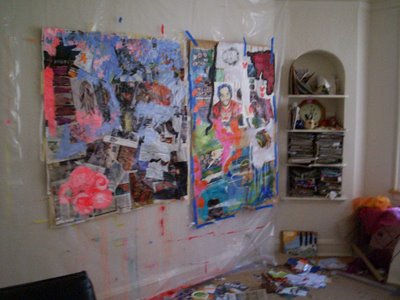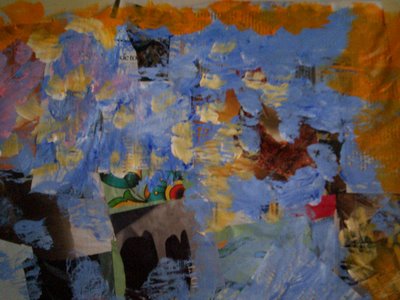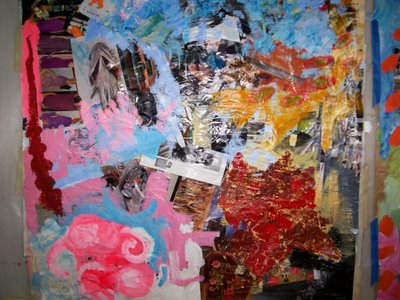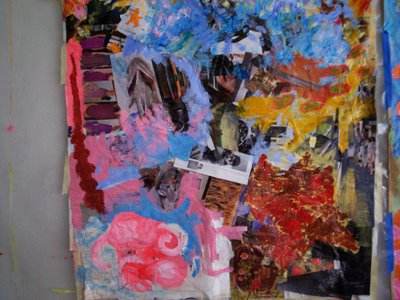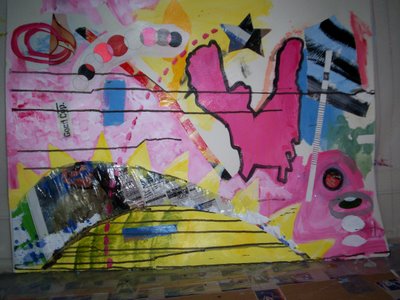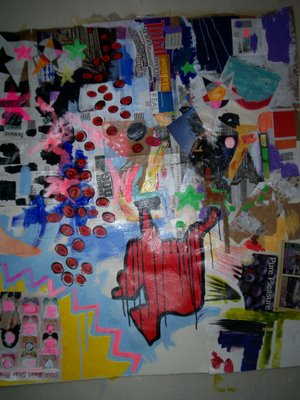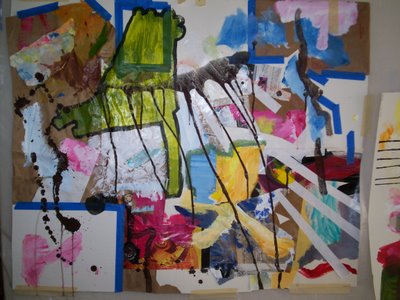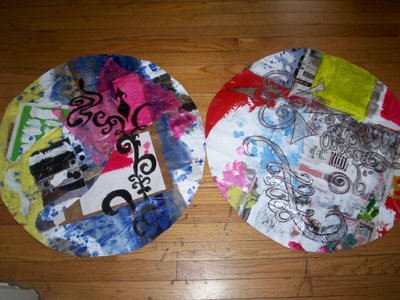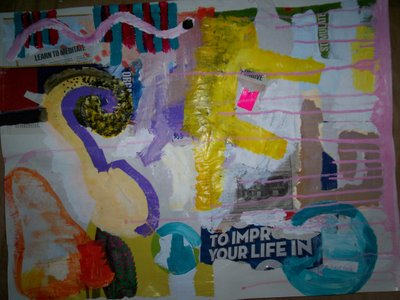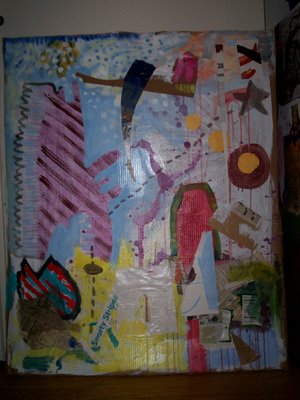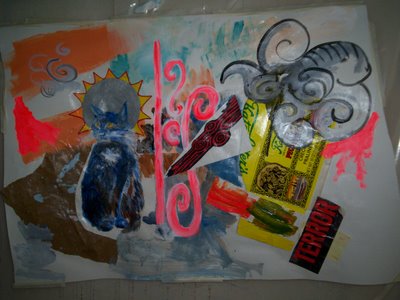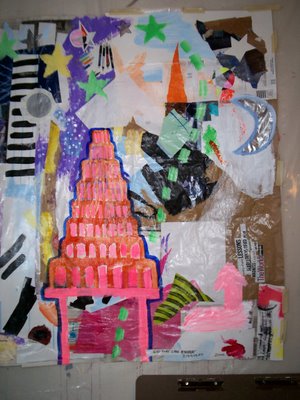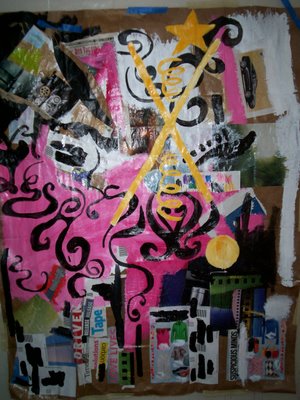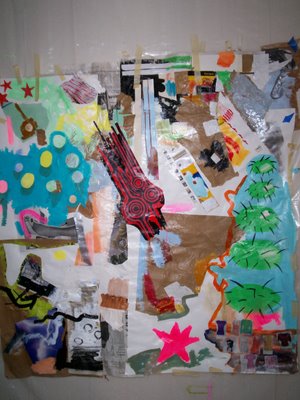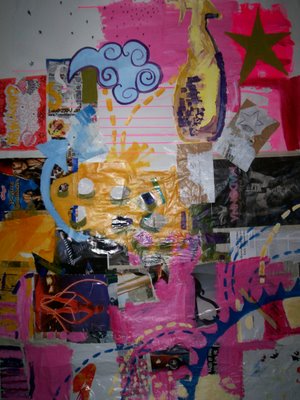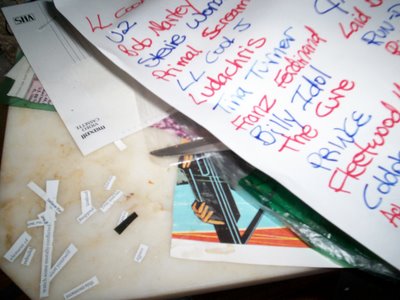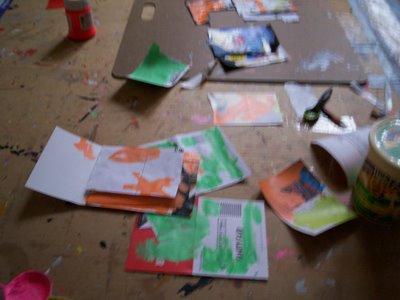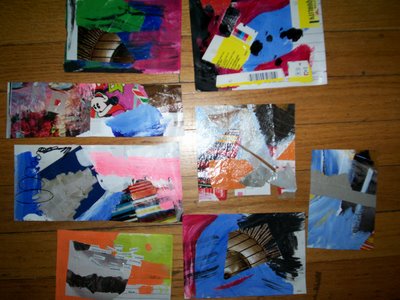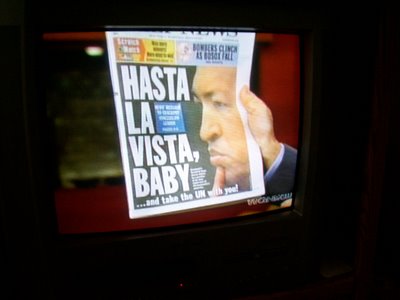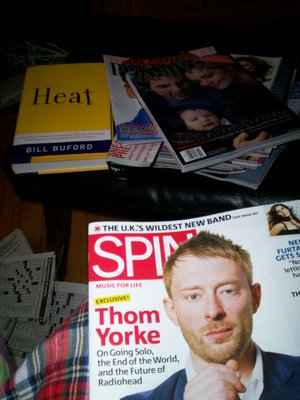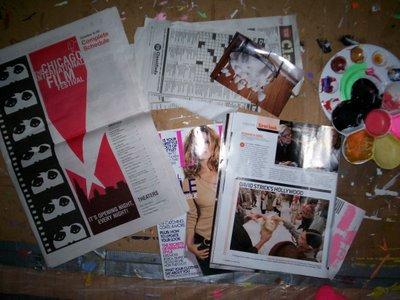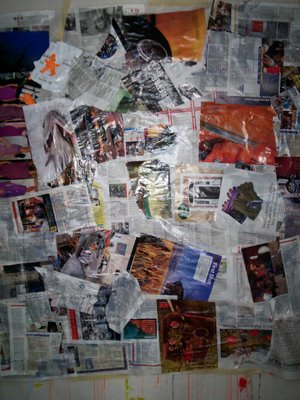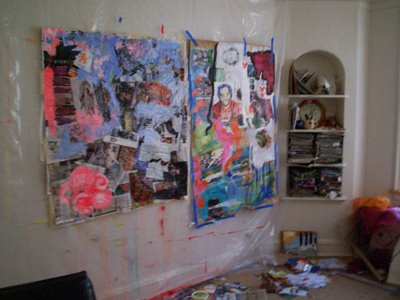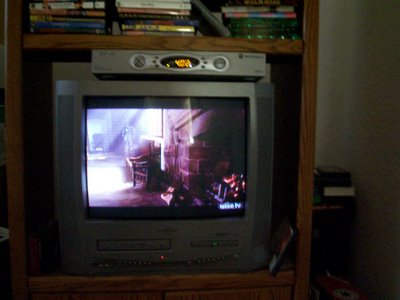However, she puffed nervously on her cigarette and, rather bravely, picked up the phone. "hello. Buddy?" she said.
"Hello, sweetheart. How are you-are you alright?"
"I'm fine. How are you? You sound as though you have a cold." Then, when there was no immediate response: "I suppose Bessie's been
brief-ing you by the hour."
"Well-after a fashion. Yes and no. You know. Are you alright, sweetheart?"
"I'm fine. You sound funny though. Either you have a terrible cold or this is a terrible connection. Where are you, anyway?"
"Where am I? I'm right in my element, Flopsy. I'm in a little haunted house down the road. Never mind. Just talk to me."
Franny unplacidly crossed her legs. "I don't know exactly what you'd like to talk about, she said. "What all's Bessie tell you, I mean?"
There was a most characterisitically Buddy-like pause at the other end. It was exactly the kind of pause-just a trifle rich with seniority of years-that had often tried the patience of both Franny
and the virtuoso at the other end of the phone when they were small children. "Well I'm not terrible sure sure what all she told me, sweetheart. Past a certain point, it's a little rude to go on listening to Bessie on the phone. I heard about the cheesburger diet, you can be sure. And, of course, the Pilgram books. Then I think I just sat with the phone at my ear, not really listening. You know."
"Oh." Franny said. She switched her cigarette over to her telephone hand and, with her free hand, reached again under the canvas cover on the night table and found a tiny ceramic ashtray, which she placed beside her on the bed. "You sound funny." she said. "Do you have a cold, or what?"
"I feel wonderful, sweetheart. I'm sitting here talking to you and I feel wonderful. It's a joy to hear your voice. I can't tell you."
Franny once again pushed back her hair with one hand. She didn't say anything.
"Flopsy? Can you think of anything Bessie may have missed? You feel like talking at all?"
With her fingers, Franny slightly altered the position of the tiny ashtray beside her on the bed. "Well," she said"I'm a little talked out, to be
honest with you. Zooey's been at me all morning."
"Zooey? How is he?"
"How
is he?" He's
fine. He's just tip
top. I could just murder him, that's all."
"Murder him? Why? Why, sweetheart? Why could you just murder our Zooey?"
"
Why? Because I just could, that's all. He's com
pletely desructive. I've never met anyone so complely desructive in my life! It's just so un
necessary! One minute he launches this allout attack on the
Jesus prayer-which I happen to be interested in-making you think you're some kind of neurotic
nitwith for even being
interested in it. And about two minutes later he starts raving to you about how Jesus is the only person in the world he's ever had any re
spect for-such a marvelous
mind, and all that. He's just so er
ratic. I mean he goes around and around in such horrible
circles."
"Tell about it. Tell about the horrible circles."
Here Franny made the mistake of giving a little exhalation of impatience-she had just inhaled cigarette smoke. she coughed. "Tell about it! It would just take me all day, that's all! She put a hand to her throat, and waited for the wrong-passage discomfort to pass. "he's just a monster," she said. "He is! Not really a
monster but- I don't know. He's so
bitter about things. He's bitter about re
ligion. He's bitter about
television. He's bitter about you and Seymour-he keeps saying you both made freaks out of us.
I don't know. He jumps from one-"
"Why freaks? I know he thinks that. Or thinks he thinks it. But did he say why? What's his definition of a freak? He say, sweetheart?"
Just here, Franny, in apparent despair at the naivete of the question, struck her forehead with her hand. Something she very probably hadn't done in five or six years-when, for example, halfway home on the Lexington Avenue bus, she discovered she had left her scarf back at the movies. "What's his defi
nition?" sha said. "He has a bout
forty definitions for everything! If I sound slightly un
hinged, that's the reason why. One minute-like last night-he says we're freaks because we were brought up to have only one set of standars.
Ten minutes later he says
he's a freak because he never wants to meet anybody for a drink. The only time-"
"Never wants to what?"
"Meet anybody for a
drink. Oh, he had to go out lasst night and meet this television writer for a drink downtown, in the Village and all. That's what started it. He says the only people he ever really wants to meet for a drink somewhere are all either dead or unavailable. He says he never even wants to
lunch with anybody, even, unless he thinks there's a
good chance its going to turn out to be Jesus, the person-or the Buddha, or Hui-neng, or Shankaracharya, or somebody like that. You know." Franny suddenly put out her cigarette in the tiny ashtray-with some awkwardness, not having her second hand free to brace the ashtray. "You know what else he said to me?" she said. "You know what he swore up and down to me? He told me last night he once had a glass of ginger ale with Jesus in the kitchen when he was eight years old. Are you listening?"
"I'm listening, I'm listening...sweetheart."
"He said he was-this is exacty what he said-he said he was sitting at the table in the kitchen, all by himself, drinking a glass of ginger ale and eating
saltines and reading
'Dombey and Son' and all of a sudden Jesus sat down in the other chair and asked if he could have a small glass of ginger ale. A
small glass, mind you-that's exactly what he said. I mean he says things like that, and yet he thinks he's perfectly qualified to give
me a lot of advice and stuff!
That's what makes me so mad! I could just spit! I could! It's like being in a
lunatic asylum and having another patient all dressed up as a
doctor come over and start taking your pulse or something....It's just awful. He talks and talks and talks. And if he isn't
talking, he's smoking his smelly cigars all over the house. I'm so sick of the smell of cigar smoke I could just roll over and
die"
"The cigars are ballast, sweetheart. Sheer ballast. If he didn't have a cigar to hold on to, his feet would leave the ground. We'd never see our Zooey again."
There were several verbal stunt pilots in the Glass family, but this last little remark perhaps Zooey alone was coordinated well enough to bring in safely over a telephone. Or so this narrator suggests. And Franny may have felt so, too. In any case, she suddenly knew that it was Zooey at the other end of the phone. She got up, slowly, from the edge of the bed. "All right, Zooey," she said. "All right."
Not quite immediately: "Beg pardon?"
"I said, all right, Zooey."
"Zooey? What is this?...Franny? You there?"
"i'm here. Just stop it now, please. I know it's you."
"What in the world are you talking about, sweetheart? What is this? Who's this Zooey?"
"Zooey
Glass," Franny said. "Just stop it now, please. You're not being funny. As it happens, I'm just barely getting back to feeling half-way-"
"Grass, did you say? Zooey
Grass? Norwegian chap? Sort of heavyset, blond, ath-"
"All
right, Zooey. Just stop, please. Enough's enough. You're not funny...In case you're interested, I'm feeling absolutely lousy. So if there's anything special you have to say to me,please hurry up and say it and leave me
alone."This last, emphasized word was oddly veered away from, as if the stress on it hadn't been fully intended.
There was a peculiar silence at the other end of the phone. And a peculiar reaction to it from Franny. She was disturbed by it. She sat down again on the edge of her father's bed. "I'm not going to hang
up on you or anything.
" she said. "But I'm
tired, Zooey. I'm just exhausted, frankly." She listened. But there was no response. She crossed her legs. "You can go on like this all day, but I can't." she said. "All I am is on the receiving end. It isn't terribly pleasant, you know. You think everybody's made of iron or something." She listened. She started to speak again but stopped when she heard the sound of a voice being cleared.
"I don't think everybody's made of iron, buddy."
This abjectly simple sentence seemed to disturb Franny rather more than a continued silence would have. She quickly reached over and picked a cigarette out of the porcelain box, but didn't prepare to light it. "Well you'd think you did." she said. She listened. she waited. "I mean, did you have any special
reason for calling me?"
"No special reason, buddy, no special reason."
Franny waited. Then the other end spoke up again.
" I suppose I more or less called to tell you to go on with your Jesus prayer if you want to. I mean that's your business. That's your business. It's a goddam nice prayer, and don't let anybody tell you anything different."
"I know," Franny said. Very nervously, she reached for the box of matches.
"I don't think I ever really meant to try to
stop you from saying it. At least, I don't think I did. I don't know. I don't know
what the hell was going on in my mind. There's one thing I
do know for sure though. I have no goddam authority to be speaking up like a
seer the way I have been. We've had enough goddam seers in this family. That part bothers me. That part scares me a little bit."
Franny took advantage of the slight pause that followed to straighten her back a trifle, as though, for some reason, good posture, or better posture, might come in handy at any moment.
"It
scares me a little bit, but it doesn't petrify me. Let's get that straight. It doesn't
petrify me. Because you forget one thing, buddy. When you first felt the urge, the
call, to say the prayer, you didn't immediately start searching the four corners of the world for a master.
You came home. You not only came
home but you went into a goddam collapse. So if you look at it in a certain way, by rights you're only entitled to the low-grade spiritual counsel we're able to give you around here, and no more. At least you know there won't be any goddam ulterior motives in this madhouse. Whatever we are, we're not too
fishy, buddy."
Franny suddenly tried with one hand alone to get a light for her cigarette. She opened the matchbox compartment sucessfully, but one inept scratch of a match sent the box to the floor. She bent quickly and picked up the box, and let the spilled matches lie.
"I'll tell you one thing, Franny. One thing I
know. And don't get upset. It isn't anything bad. But if it's the religious life you want, you ought to know right now that you're missing out on every single goddam religious action that's going on around this house. You don't even have sense enough to
drink when somebody brings you a cup of consecrated chicken soup- which is the only kind of chicken soup Bessie ever brings to anybody in this madhouse. So just
tell me, just tell me, buddy. Even if you went out and searched the whole world for a masteros-me guru, some holy man- to tell you how to say your Jesus prayer properly, what good would it do you? How in
hell are you going to recognize a legitimate holy man when you see one if you don't even know a cup of consecrated chicken soup when it's right in front of your nose? Can you tell me that?"
Franny was now sitting up rather abnormally straight.
"I'm just asking you. I'm not trying to upset you. Am I upsetting you?"
Franny answered, but her answer evidently didn't carry.
"What? I can't hear you."
"I said no. Where are you calling from? Where are you now?"
"Oh, what the hell's the difference where I am? Pierre, South Dakota, for God's sake. Listen to me, Franny-I'm sorry, don't get riled. But listen to me. I have just one or two very small things more, and then I'll quit, I promise you that. But did you know, just by the way, that Buddy and I drove up to see you in stock last summer? Did you know we saw you in 'Playboy of the Western World' one night? One god-awful
hot night, I can tell you that. But did you know we were there?"
An answer seemed to be called for. Franny stood up, then immediately sat down. She placed the ashtray slightly away from her, as if it were very much in her way. "No, I didn't," she said. "Nobody said one single-
No, I didn't."
"Well, we were. We were. And I'll tell you, buddy. You were good. And when I say good, I mean,
good. You held that goddam mess
up. Even all those sunburned lobsters in the audience knew it. And now I hear you're finished with the theatre forever-I hear things, I hear things. And I remember the spiel you came back with when the season was over. Oh, you irritate me, Franny! I'm sorry, you
do. You've made the great
startling goddam discovery that the acting profession's loaded with mercenaries and butchers. As I remember, you even looked like somebody who'd just been
shattered because all the ushers hadn't been geniuses. What's the
matter with you, buddy? Where are your brains? If you've had a freakish education, at least
use it. You can say the Jesus Prayer from now till doomsday, but if you don't realize that the only thing that counts in religious life is de
tachment, I don't see how you'll ever even move an
inch. Detachment, buddy, and only detachment. Desirelessness. 'Cessation from all hankerings.' It's this business of de
siring, if you want to know the goddam truth, that makes an actor in the first place. Why're making me tell you things you already know? Somewhere along the line-in one goddam incarnation or another, if you like-you not only had a hankering to be an actor but to be a
good one. You're stuck with it now. You can't just
walk out on the results of your own hankerings. Cause and effect, buddy, cause and effect. The only thing you can do now, the only re
ligious thing you can do is
act. Act for God, if you want to-be
God's actress, if you want to. What could be prettier? You can at least try to, if you want to-there's nothing wrong in
trying." There was a slight pause. "you'd better get busy, though. buddy. The goddam
sands run out on you every time you turn around. I know what I'm talking about. You're lucky if you get time to sneeze in this goddam phenomenal world." There was another, sligher pause. "I used to worry about that. I don't worry about it very much any more. At least I'm still in love with Yorick's skull. I want an honorable goddam skull like Yorick's. And so do
you, Franny Glass. So do you, so do you...Ah God what's the use of talking? You had the same goddam freakish upbringing as I did, and if you don't know by this time what kind of
skull you want when you're dead, and what you have to do to
earn it-I mean if you don't
at least know by this time that if you're an actress you're supposed to
act, then what's the use of talking?
Franny was now sitting with the flat of her free hand pressed against the side of her face, like someone with an excruciating toothache.
"One other thing. And that's all. I promise you. But the thing is, you raved and you bitched when you came home about the stupidity of audiences. The goddam 'unskilled laughter' coming from the fifth row. And that's right, that's right-God knows it's depressing. I'm not saying it isn't. But that's none of your business, really. that's none of your business, Franny. An artist's only concern is to shoot for some kind of perfection, and
on his own terms, not on anybody else's. You have no right to think about those things, I swear to you. Not in any real sense, anyway. You know what I mean?"
There was a silence. Both saw it through without any seeming impatience or awkwardness. Franny still appeared to have some considerable pain on one side of her face, and continued to keep her hand on it, but her expression was markedly uncomplaining.
The voice at the other end came through again. "I remember about the fifth time I ever went on 'Wise Child'. I subbed for Walt a few times when he was in a cast-remember when he was in that cast? Anyway, I started bitching one night about the broadcast. Seymour'd told me to shine my shoes just as I was going out the door with Walker. I was furious. The studio audience were morons, and I just damn well wasn't going to shine my shoes for them, I told Seymour.I said, they couldn't see them
anyway, where we sat. He said to shine them anyway. He said to shine them for the Fat Lady. I didn't know what the hell he was talking about, but he had a very Seymour look on his face, and so I did it. He never did tell me who the Fat Lady was, but I shined my shoes for the Fat Lady every time I ever went on the air again-all the years you and I were on the program together, if you remember. I don't think I missed more than just a couple of times. This terribly clear, clear picture of the Fat Lady formed in my mind. I had her sitting on this porch all day, swatting flies, with her radio going full-blast from morning till night. I figured the heat was terrible, and she probably had cancer, and-I don't know.Anyway, it seemed goddam clear why Seymour wanted me to shine my shoes when I went on the air. It made
sense."
Franny was standing. She was holding the phone with two hands. "He told me, too." she said into the phone. "He told me to be funny for the Fat Lady, once." She released one hand from the phone and placed it, very briefly, on the crown of her head, then went back to holding the phone with both hands. "I didn't ever picture her on a porch, but with very-you know- very thick legs, very veiny. I had her in an
awful wicker chair. She had cancer,
too, though, and she had the radio going full-blast all day! Mine did, too!"
"Yes, Yes, Yes. All right. Let me tell you something now, buddy...Are you listening?"
Franny, looking extremely tense, nodded.
"I don't care where an actor acts. It can be in summer stock, it can be over the radio, it can be over
television, it can be ina goddam Broadway theatre, complete with the most well-fed, most sunburned-looking audience you can imagine. But I'll tell you one a terrible secret-Are you listening to me?
There isn't anyone out there who isn't Seymour's Fat Lady. That includes your Professor Tupper, buddy. And all his goddam cousins by the dozens. There isn't anyone
anywhere that isn't Seymour's Fat Lady. Don't you know that? Don't you know that goddam secret yet? And don't you know-
listen to me, now-
don't you know who that Fat Lady really is?...Ah, buddy. It's Christ Himself. Christ Himself, buddy."
For joy, apparently, it was all Franny could do to hold the hone, even with both hands.
For a fullish half minute or so, there were no other words, no further speech. Then: "I can't talk anymore, buddy." The sound of a phone being replaced in its catch followed.
Franny took in her breath slightly but continued to hold the phone to her ear. A dial tone, of course, followed the formal break in the connection. She appeared to find it extraodinarily beautiful to listen to, rather as if it were the best possible substitute for the primordial silence itself. But she seemed to know, too, when to stop listening to it, as if all of what little or much wisdom there is in the world were suddenly hers. When she had replaced the phone, she seemed to know just what to do next, too. She cleared away the smoking things, then drew back the cotton bedspread from the bed she had been sitting on, took off her slippers, and got into the bed. For some minutes, before she fell into a deep, dreamless sleep, she just lay quiet, smiling at the ceiling.
From
Franny and Zooey by
J.D. Salinger.
